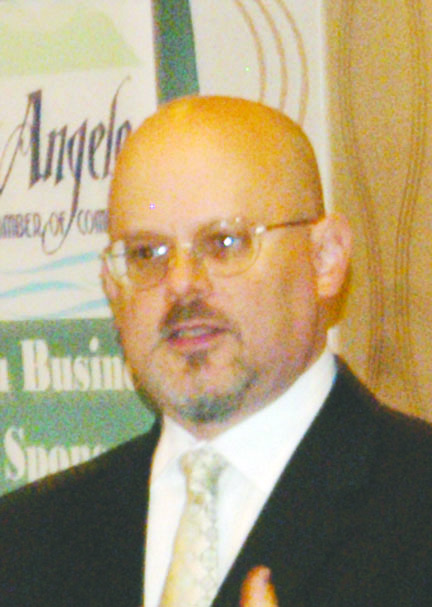PORT ANGELES — The state Department of Natural Resources should do better at keeping jobs on the North Olympic Peninsula, a Forks city official said Monday.
Rod Fleck, city attorney and planner, told Port Angeles Regional Chamber of Commerce members that the DNR was supposed to sell — but didn’t — 247 million board feet of timber on county trust lands in the Olympic region in the past decade.
That unsold timber, or arrearage, contributed to the recent demise of the Interfor sawmill in Beaver and planer mill in Forks, the Green Creek mill in west Port Angeles and the Allen Logging Co. mill south of Forks, Fleck said.
Lack of logs
Officials with all three of those mills cited a lack of logs as one reason for closing.
“DNR is vital to the operations of Clallam County . . . and every day they don’t do their job, you are harmed in this room,” Fleck told about 50 attendees of the chamber luncheon at the Port Angeles Red Lion Hotel.
“And they’ve got a lot of challenges. There’s some hardworking people there in the Forks region; there’s some hardworking people in Olympia headquarters.
“The problem is we need them to come out swinging as a professional team in the major leagues every year and not try to figure out what league they’re playing in every other year.”
Fleck has critiqued the role that DNR plays in supplying the region’s mills in several presentations to industry officials and community groups.
He explained Monday that DNR sets a target level, or sustainable harvest calculation, for timber to be sold on county trust lands every decade.
DNR hit its target for the Olympic region in just two of the past 10 years, he said.
Revenue from timber sales is funneled to Clallam County and its junior taxing districts, including schools, hospitals and fire departments.
The arrearage that occurred on the North Olympic Peninsula in the past decade amounts to about $67 million, Fleck said.
“It’s tens of millions to the state, it is millions to the county and hundreds of thousands of dollars to the junior taxing districts,” he said.
400 jobs
Selling off that timber in the next five years would result in at least 400 jobs created, Fleck said.
“If 400 jobs isn’t important, they are in my area because we’ve lost 167 jobs in 16 months that paid family wages, that had benefits, that people didn’t need a college education to go and make $45,000 to $60,000 a year,” Fleck said.
“And those are really hard jobs to get back.”
Each timber sale goes through an exhaustive state Environmental Policy Act review process, Fleck said.
Part of the reason arrearage is occurring is because the sales are being challenged in court by members of the environmentalist community, he added.
The protection of the marbled murrelet, a small seabird that relies on old-growth forest, is a common argument against timber sales.
Another reason for arrearage is inadequate staffing at DNR, a problem that has been corrected, agency Director Peter Goldmark told the Peninsula Daily News in a June interview.
Staffing
Fleck said the agency is harvesting 120 million board feet of timber per year but is staffed to handle 100 million board feet.
Meanwhile, DNR is subject to some of the “most restrictive regulatory schemes” for environmental protection in the nation, Fleck said.
Fleck criticized DNR for changing its numbers for arrearage.
“The city of Forks is not shy in engaging DNR in frank and candid conversations,” Fleck said.
“We have a long history for 20 years in that regard in demanding some pretty specific information.”
At last count, the West End of Clallam and Jefferson counties had a combined 218 million board feet of arrearage since 2004.
Clallam County Commissioner Jim McEntire represents 21 timber counties on the state Board of Natural Resources, which sets policies for how the DNR manages state lands.
McEntire serves on an arrearage subcommittee with Thomas DeLuca, director of the School of Environmental and Forest Sciences at the University of Washington.
Meeting today
Along with Deputy Supervisor for DNR Uplands Kyle Blum, McEntire and DeLuca are scheduled to make a presentation on arrearage to the six-member DNR board at 10 a.m. today in Olympia.
The presentation includes three options from staff for dealing with arrearage.
“Either one is going to take money and jobs away from every one of us in this room if they adopt any of those three options,” Fleck said.
Option 1 would distribute the arrearage proportionally, even to counties on the Interstate 5 corridor that were over-harvested in the past decade, Fleck said.
The second option would sell the arrearage as commercial forest thinnings.
A third option would incorporate arrearage into a distant planning horizon, perhaps 100 years, according to a slideshow that accompanies the presentation.
Fleck urged the chamber members to ask their county commissioners, state legislators and DNR officials to manage the arrearage to protect jobs and revenue.
“You have a stake in this,” he said.
________
Reporter Rob Ollikainen can be reached at 360-452-2345, ext. 5072, or at rollikainen@peninsuladailynews.com.

